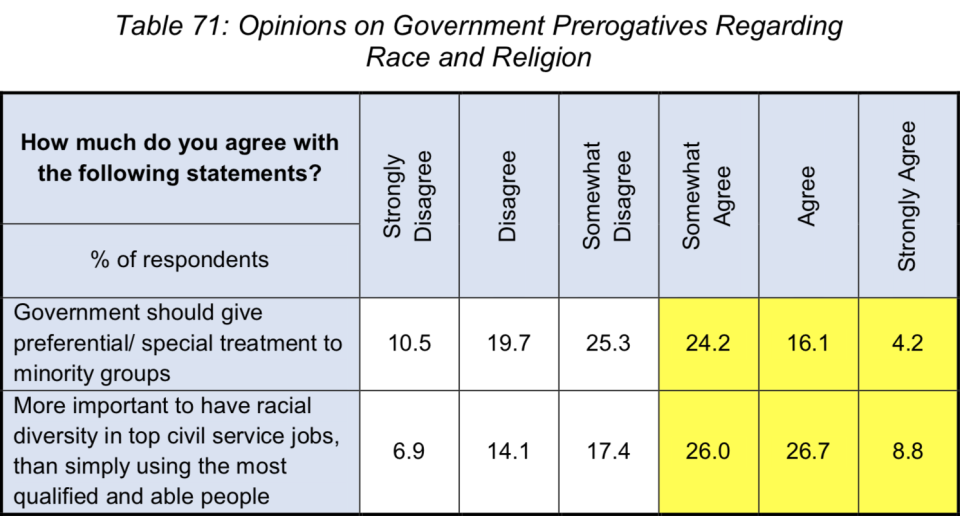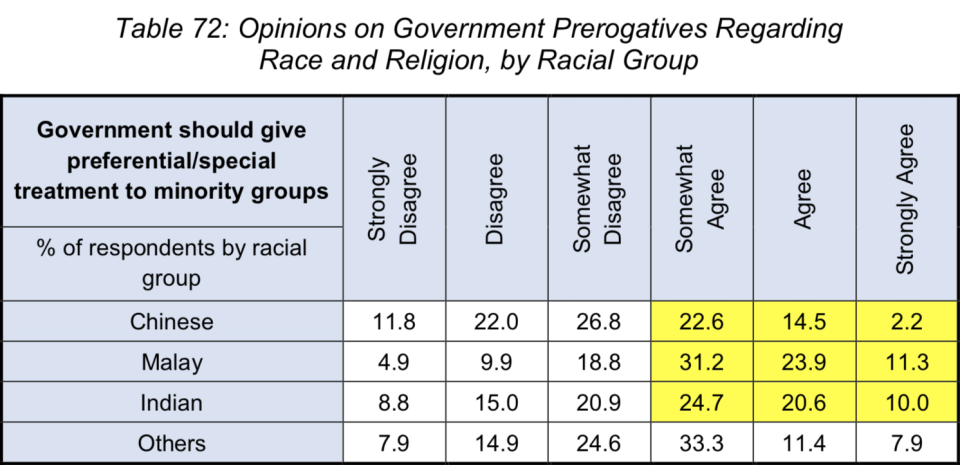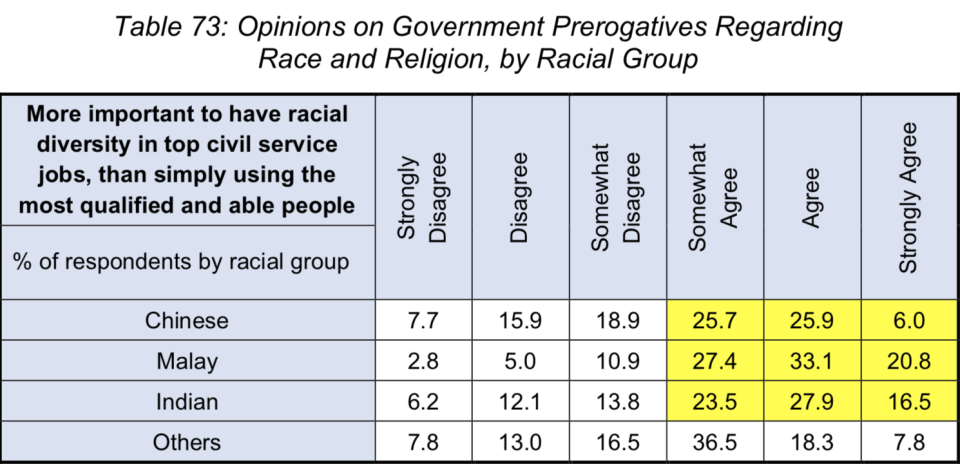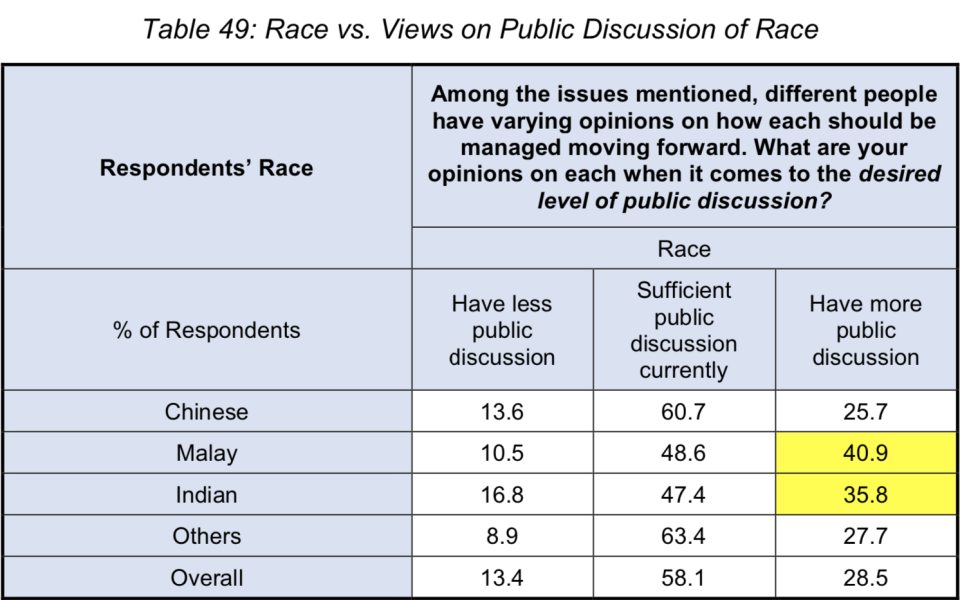Majority of Malays, Indians support affirmative action: survey

SINGAPORE — The majority of Malays and Indians polled in a recent survey support affirmative action in social policy, contrary to the views of overall respondents.
And more Malay and Indian respondents compared with Chinese who were polled said that more public discussions on race are needed.
The survey by the Institute of Policy Studies (IPS) was conducted between August last year and January this year and involved 4,015 respondents who are Singapore citizens and permanent residents. Part of the findings - involving race, religion and language - were released in July.
While 66.4 per cent of Malays and 55.3 per cent of Indians polled agreed that the government should give preferential treatment to minority groups, the figure was 39.3 per cent for Chinese respondents.
Along similar lines, 81.3 per cent of Malays and 67.9 per cent of Indians agreed that it is more important to have racial diversity in top civil service jobs than simply using the most qualified and able people. Most Chinese respondents agreed, with 57.6 per cent holding the view.
The in-depth responses by those polled to five key fault lines - race, religion, immigration, class and LGBT (lesbian, gay, bisexual and transgender) issues - were released on Tuesday (29 October) in a working paper titled ‘Faultlines in Singapore: Public Opinion on their Realties, Management and Consequences’.



Public discussion of race
While 60.7 per cent of Chinese respondents said there was sufficient public discussion on race, less than half of Malays and Indians polled agreed.
About 40 per cent of the minority groups also said there should be more public discussion on race, compared with about a quarter of Chinese respondents.
“This reinforces the premise that more attention needs to be paid to issues of race, especially from the minority’s point of view,” said the IPS paper.
“This trend is consistent with notions of majoritarian privilege and the lived experiences of minorities - where it is far more likely for minorities to encounter and be cognisant of instances whereby their race was a primary or contributing factor of an adverse experience” the paper added.

The IPS working paper can be found online here.
Other Singapore stories:
Please Stay: Bereaved Singaporean mothers launch anti-suicide initiative
Majority of Singaporeans want 1 in 5 people or fewer to be immigrants: survey



